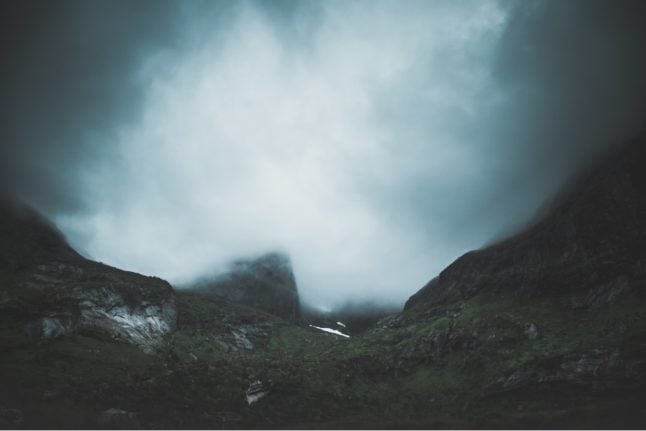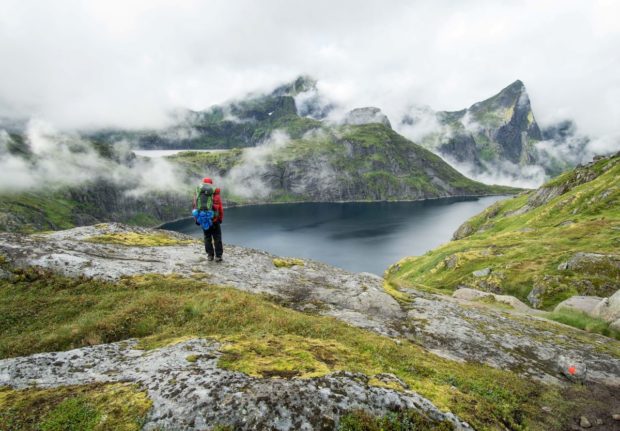It is fair to say that no one expected the extents to which it would disrupt our lives, and as we enter the second Spring of the pandemic it is clear that most Norwegians are sick and tired of it all.
The biggest effect the pandemic has had on Norway is arguably through the closing of the borders. For a people who love to travel, being unable to travel anywhere for over a year has had a big impact. Even day-trips to neighbouring Sweden to shop cheap groceries have stopped, and Norwegians with family abroad have for the most part of a year been unable to see or visit them. When the Government implemented hotel quarantine in the autumn, Norwegians caught abroad went into panic.
Norway is a travel destination, where many local communities are dependent on tourists for the local economy to thrive. Unemployment has soared in these areas and many businesses have been forced to shut.
Education, seminars, work and social life has been moved to the online sphere, while a night on the town with friends has been replaced with a Zoom quiz and laughter shared through a screen. Neither bad, just different. School exams have been cancelled for the second year in a row, with the competition for university enrolment tougher than ever for those who graduated prior to the ‘corona generation’.
Loneliness among students has been estimated to be at an all-time high and graduates are struggling to enter the work force where jobs are scarce.
Face masks have also become mandatory in many places, and every shop smells of disinfectant.
Yet, perhaps Norwegians have come to enjoy the small things to a greater extent, and many more have discovered the magic of their home country as the summer encouraged local travel. Despite economic hardship, sales of cabins have skyrocketed, with people desperate for a new place to escape to that looks different from their four walls at home.
READ ALSO: Three scenarios: When will life return to normal in Norway?
However, many businesses are discovering that a home-office solution is in fact very viable, and sometimes preferred. Additionally, families have been granted much needed quality-time over the course of lockdown, which for many has been a great gift. But then you have those stuck in abusive households or living alone, who have never had it worse. There is no golden line.
Dugnadsånd [the sprit of working together as a community for the greater good, ed.] has been pushed as a political agenda and with news of the long-awaited vaccine in the New Year it seemed we had found our golden ticket, only to be left disappointed and in disarray.
Although the vaccine is here and reportedly working, queues are long and the schedule for completed vaccinations subject to change. For some it is hard to keep track of the ever changing rules and regulations. Can I visit my cabin or can I not? Can I hug my grandmother or can I not? Will I be able to go on summer vacation this year or not? The questions are endless.
Compared to many countries, though, Norway has coped well through a pandemic that has cost the world greatly. For a few months in spring and summer people got a taste of the life we left behind and were able to meet friends, have picnics in the park, travel to some countries in Europe part of the ‘travel corridor’ and visit their elderly relatives who had been isolated and alone. It was a glimpse into the life that we hope will yet return.
With an upcoming general election in September it will be interesting to see the people’s verdict on how Prime Minister Erna Solberg and the Government has fared, but more importantly it is likely to show how our priorities have changed. Never before have we realised the immense importance of a well-functioning and prepared healthcare system, supportive welfare systems or the necessity to invest in mental health and wellbeing.
As Norway manoeuvres through its second wave and with vaccinations slow, it can be hard to see the light at the end of the tunnel, but like the Norwegian nights get longer and brighter so will life. It might just take a little longer than we all first anticipated.
READ ALSO: Winter holiday: The dos and don’ts of ‘vinterferie’ in Norway during the pandemic



 Please whitelist us to continue reading.
Please whitelist us to continue reading.
Member comments